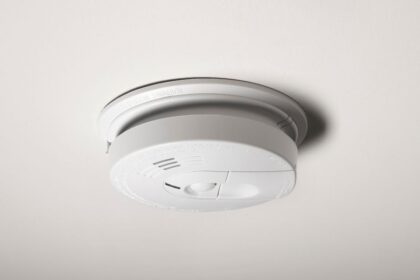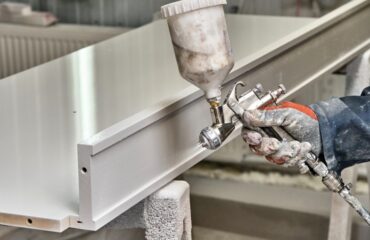
Residential fires are an unfortunately common occurrence that can pose grave safety risks and cause significant property damage. To safeguard our communities, it is crucial for homeowners and residential building planners to understand and adopt these four residential fire prevention strategies.
Build With Fire-Resistant Materials
One of the most effective ways to prevent house fires is by opting for fire-resistant construction materials, as they can slow the spread of flames and reduce the damage caused by fires. When considering roofing options, opt for materials like asphalt shingles, metal, slate, or clay tiles. Compared to traditional wooden beams, an engineered lumber product like timber joists reduces the likelihood of a fire spreading quickly. Additionally, consider hiring a professional painter to apply fire protection paint to cover any vulnerable materials and areas, such as your building’s exposed structural materials.
Inspect and Maintain Home Electrical Systems
Electrical fires are another leading cause of residential fires, especially during the holiday season. Therefore, it is vital to regularly inspect electrical systems for potential hazards. Hazards could include damaged wiring, overloaded circuits, improperly grounded outlets, and faulty electrical equipment. You should also ensure your household uses extension cords and power strips properly and avoid daisy-chaining or overloading outlets. Always consult a licensed electrician for complex electrical work and repairs, and avoid DIY electrical fixes.
Install Fire Protection Systems
Well-designed and maintained fire protection systems are essential for detecting and suppressing residential fires. First, install smoke detectors on every floor, in all bedrooms, and near living spaces. Establish a monthly schedule to test the detectors and replace their batteries annually. A robust automatic fire sprinkler system can extinguish small fires before they escalate, reducing property damage and potentially saving lives. Lastly, having easily accessible fire extinguishers on each floor and in high-risk areas such as the kitchen is essential for putting out small fires before they become unmanageable.
Use Heating Systems and Appliances Responsibly
Homeowners must use heating systems and appliances with caution, as improper use can lead to a fire. To ensure safe and efficient operation, schedule annual checkups and professional maintenance for heating systems, including furnaces and chimneys. Also, ensure you use portable heaters according to the manufacturer’s guidelines, and never place them near flammable materials. Finally, practice safety in the kitchen by staying vigilant when cooking and being mindful of any loose or frayed wiring on your appliances.
Adopting these four residential fire prevention strategies can significantly reduce the risk of house fires and deliver a safer living environment for all. We encourage homeowners and residential building contractors to take the necessary steps to build and maintain safe homes, boosting overall fire safety awareness and preventing devastating losses in our neighborhoods. And when you’re looking for intumescent paint for new building protection, come to Firefree Inc. for all your fire-resistant coating needs.


